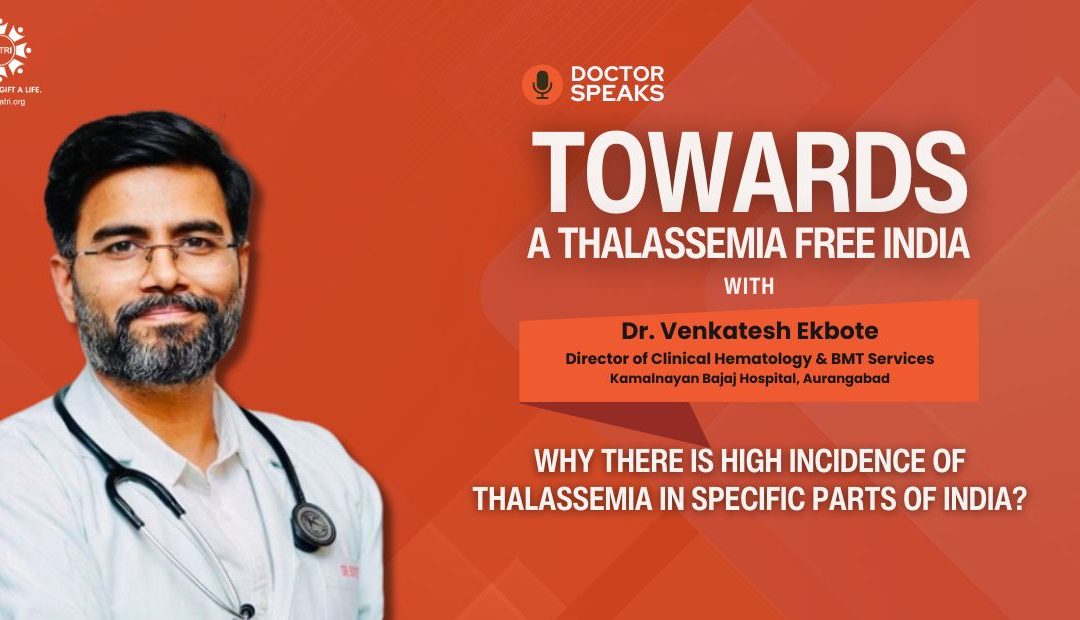Thalassemia, a genetic blood disorder, has a significantly high incidence in certain regions of India. Dr. Venkatesh Ekbote, Director of Clinical Hematology & BMT Services at Kamalnayan Bajaj Hospital, Aurangabad, explains why this is the case and what can be done to address it.
Why Thalassemia is Prevalent in Specific Regions
Thalassemia is notably prevalent in specific parts of India primarily due to a lack of awareness about screening programs and genetic counseling. In these regions, certain populations often marry within their own communities. This practice increases the chances of genetic diseases like thalassemia being passed on to the next generation.
The Role of Awareness and Screening
Dr. Ekbote emphasizes that raising awareness and implementing screening programs can significantly reduce the transmission of thalassemia. While thalassemia is a genetic condition, it is not guaranteed to be passed on between carriers. Even if both parents are carriers, they can still have a healthy child in 75% of cases. In each pregnancy, there is only a 25% chance of having a child with thalassemia.
Genetic Testing: A Preventive Measure
Couples who are aware of their carrier status can take preventive measures to ensure their children do not inherit thalassemia. Genetic testing of the fetus can determine whether the child will have thalassemia or simply be a carrier. Informed parents can then decide whether to continue the pregnancy or opt for abortion before 20 weeks, if necessary. Facilities for such testing and procedures are available across Maharashtra.
Community Involvement and Support
Community-based awareness programs are essential in the fight against thalassemia. Hematologists, along with organizations like DATRI, which leads thalassemia control programs, can collaborate to educate communities about the disease and the importance of genetic screening. These initiatives not only reduce the burden on the medical community but also empower individuals to take proactive steps in managing their health.
Steps to Take
- Get Tested: Individuals with a family history of thalassemia or those belonging to high-risk communities should get tested for carrier status.
- Promote Awareness: Encourage and participate in community-based awareness programs to educate people about thalassemia and the importance of genetic screening.
- Access Genetic Counseling: Couples who are carriers should seek genetic counseling to understand their options for having healthy children.
- Utilize Available Facilities: Make use of genetic testing facilities available across regions like Maharashtra to prevent the transmission of thalassemia.
Conclusion
By increasing awareness, promoting genetic testing, and supporting community education programs, we can significantly reduce the incidence of thalassemia in affected regions. Dr. Ekbote’s insights highlight the importance of proactive measures and community involvement in managing this genetic disorder. Through collective efforts, we can work towards a future where thalassemia is no longer a prevalent health concern in India.
About DATRI:
DATRI Blood Stem Cell Donors Registry, a not-for-profit organisation, has facilitated more than 1207 Blood Stem Cell Donations to date. The journey began in the year 2009 to find unrelated matched donors for patients with leukaemia, Thalassemia or blood disorders whose life is dependent on an unrelated donor to survive. DATRI, India’s largest Blood Stem Cell Donors Registry, has more than 5,30,072 donors registered. DATRI is working towards creating a wide and diverse database of potential Blood Stem Cell Donors that can be accessed by any patient living anywhere in the world in need of a Blood Stem Cell Donation. Any healthy individual between the age of 18 years to 50 years can register as a blood stem cell donor with DATRI and potentially become a lifesaver when they’re found to be a match for a fatal blood disorder patient.
For more information about thalassemia click the links below to watch Dr. Venkatesh Ekbote’s interview

